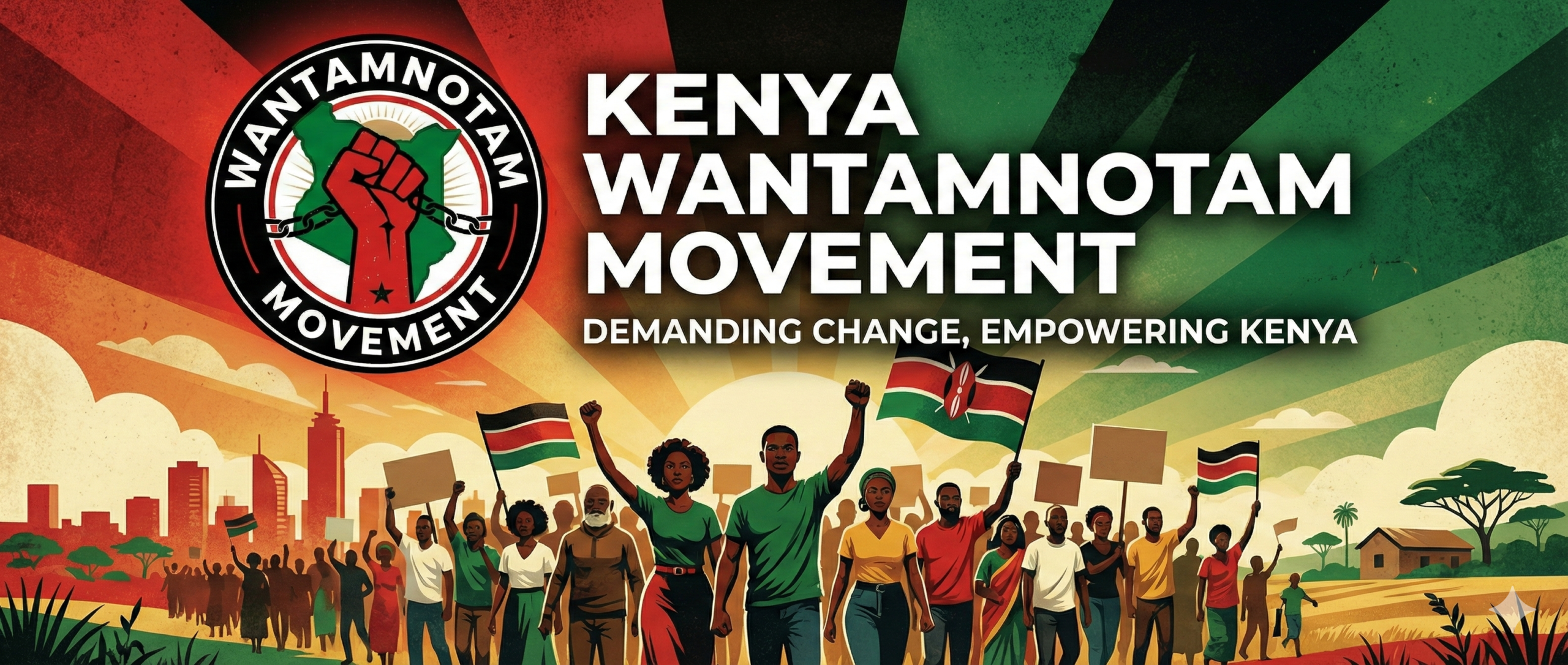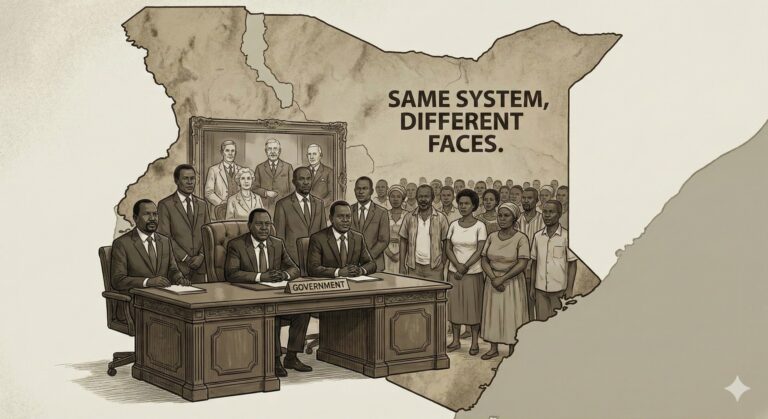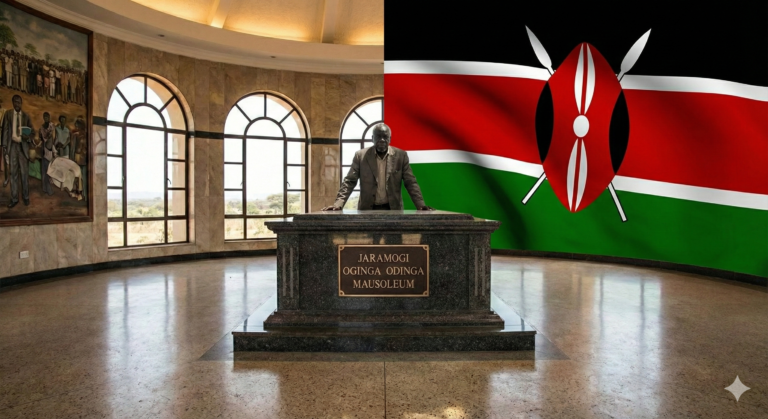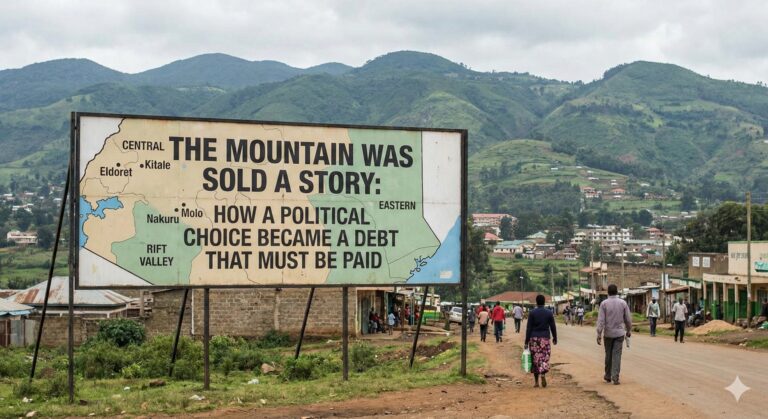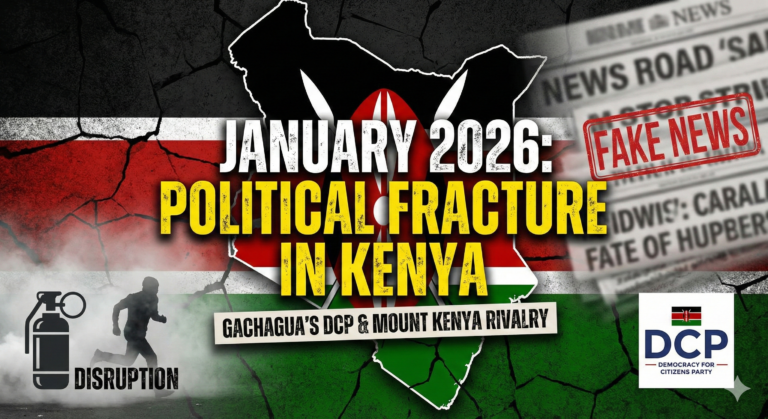Kenya’s future doesn’t hinge solely on political leadership. It’s time to recognize the real power lies within the people. For years, the people of Kenya have been led to believe that change will only come when the right leaders are elected, but this mindset needs to change. A collective shift in mentality is the key to a new Kenya—one that doesn’t wait for promises to be fulfilled but actively creates the change it seeks. This isn’t about being passive recipients of the government’s promises; it’s about taking charge, holding those in power accountable, and most importantly, becoming the driving force behind the progress that’s needed in communities across Kenya.
The Power of the People: Your Role in Shaping Kenya’s Future
Kenya’s leadership has continuously promised change, but the reality is that real transformation starts with the citizens themselves. Leaders thrive when the people don’t demand what’s rightfully theirs, when they don’t challenge their failure to deliver on promises. If you’ve been waiting for politicians to improve your local schools, clinics, roads, and communities, it’s time to stop. The truth is, you don’t need to wait for an election cycle to demand better services—you can begin improving your neighborhood today.
The time for waiting is over. It’s time to act locally and think nationally. Whether you live in a rural village or a busy urban city, your voice and actions matter. The people who are most affected by poor infrastructure, failed policies, and unmet promises are you and your community. So why wait for change when you can lead it?
Taking Ownership: Start with Your Neighborhood, Village, or City
Whether in a rural village or a bustling city, every community in Kenya faces its unique challenges. You can tackle these challenges by organizing small but effective groups in your neighborhood or village. Take a long, hard look at your environment—your hospital, your clinic, your school—and ask yourself what needs to be done. A small group of committed individuals can make significant improvements.
The work begins with the basics: cleaning up public spaces, organizing small repairs, and offering support for local workers. This may seem small at first, but it creates a ripple effect that will build momentum. Imagine the impact if every village and city in Kenya had groups of citizens taking ownership of their local public services. Hospitals would have cleaner and safer environments, schools would no longer be left to crumble, and roads would not be neglected.
You don’t need permission to act. You are the change-makers. Gather a group, and start cleaning up the local clinic or hospital. Fix broken fences, sweep the grounds, and make the place presentable again. When the local leaders visit, let them see your work—show them that you don’t need their promises; you’re already doing what they should’ve been doing all along. This is a powerful act of defiance.
By becoming active participants, you force leaders to face the reality of their neglect. They can no longer walk into a community where citizens are silently waiting for help. Let them arrive and see that the work has already been done by the people. Let them witness the embarrassment of seeing citizens do their jobs for them.
Churches and Church Members: The Powerful Force for Change
The role of churches and church members in driving change in communities cannot be overstated. Churches have historically been a cornerstone of Kenyan society, not just for spiritual nourishment but for social change. Churches can and should be a powerful force for good in local communities, creating transformative change by organizing around shared values and goals.
Just like any other group, churches can mobilize their members to take action. Imagine if every church in Kenya committed to improving the conditions of their local environment. From cleaning up hospitals and schools to building essential infrastructure, churches are uniquely positioned to inspire people to act. Church leaders can call on their congregations to step outside the pews and into their communities, leading projects that enhance local services, care for the poor, and address issues like education and healthcare.
Churches can also facilitate the creation of small community groups that focus on specific projects—whether it’s building a local clinic, organizing clean-ups, or creating educational initiatives for children. These groups can provide a much-needed sense of ownership and empowerment. When the congregation rallies around a local cause, it builds a sense of unity and purpose that can be incredibly powerful.
Church members also have access to resources that can help fund and support these efforts. Whether it’s through local fundraising, donations from other churches, or partnerships with organizations, churches can be key players in securing the financial backing needed for local projects. Moreover, churches often have networks that can connect them to foreign governments, businesses, or NGOs willing to invest in grassroots efforts that are led by local communities.
The truth is, churches are more than places of worship—they are potential hubs of transformation and action. Church members can become the leaders in their villages and cities by getting involved in local projects. It’s not just about charity; it’s about empowerment and creating sustainable, community-driven change.
Your Group Can Be the Force That Demands Results
You don’t have to wait for politicians to give you answers. You can set your own priorities. Organize a community meeting where people can come together and discuss what’s most needed. What does your neighborhood need most urgently? Are the schools in disrepair? Are your doctors and nurses underpaid or working in substandard conditions? Is the local economy struggling due to poor support for farmers? These are the issues that your group can begin addressing immediately.
Set clear priorities for your community and make sure these projects are executed without delay. You are the ones who know what your village or city needs better than anyone. Demand action, and ensure your leaders follow through. If the government promised something and it hasn’t been done, call them out. Track the funds allocated for local projects and ensure they are being used properly. Use your group to document progress—take pictures of improvements made, and expose delays, corruption, and ghost projects. The more visible your group becomes in demanding accountability, the more pressure you put on leaders to do their job.
The time for empty promises is over. Take action now. Whether it’s better salaries for teachers, better pay for healthcare workers, or securing the fair purchase of farmers’ produce, your group can be the voice that ensures these issues are addressed. It doesn’t matter if your group is small. What matters is that you are committed and organized. When you start demanding accountability, you start to see change happen on a massive scale.
Don’t Wait for 2027: Act Now for Immediate Change
Kenya’s political leaders have long promoted the idea that the next election will solve everything. But the truth is, elections don’t fix infrastructure, they don’t heal hospitals, and they don’t create schools where children can learn. The time for change is now. Kenya’s problems are urgent. You can’t wait for 2027. The only way to see change is to make it happen now, within your own community. Leaders have shown time and again that they won’t act until they’re forced to. You are the force.
Stop waiting for a leader to come to your village and fix the roads. Stop waiting for politicians to announce new health programs. Create your own community programs. If you need better healthcare, start by improving the local clinic. If you need better education, start by creating a group that gets books into the hands of local students. This is the kind of action that will get you results.
You can’t afford to wait for the next political cycle. Fix what’s broken now—organize your neighbors, clean up your streets, fix the potholes, and demand action from local leaders. Show them that you don’t need their handouts—you’re already doing the work they promised years ago.
Hold Your Leaders Accountable: Make Them Answer to You
Once you start taking charge, hold your leaders accountable for their promises. Politicians often make flashy promises during campaigns, but once in office, they forget the communities that helped them win. It’s time for the people to demand more.
Track the government’s promises and hold them accountable. When they say they will build a school, demand a timeline and regular updates. If they promise to repair a hospital, keep them to the timeline. Make sure projects are done with the quality and urgency they deserve. Don’t let your leaders waste time on grand speeches and empty promises. Instead, show them that the people are already working to make things better. This can be a powerful tool to ensure that they take action and fulfill their commitments.
Your group can become the force that monitors local government. Whether it’s monitoring budgets, holding town hall meetings, or reporting on ghost projects, you can ensure that your community gets what it deserves.
Explore New Opportunities for Local Funding
Here’s an exciting twist to all of this: there are businessmen and women, both local and international, who may be ready and willing to help fund your local projects. You might not realize it, but you could attract resources from places you never expected. While large NGOs often take center stage in funding projects, this kind of work is not limited to them. Local communities can tap into these resources too. The key is to start.
By demonstrating your commitment to improving your community—whether it’s better healthcare, education, or infrastructure—you may find that foreign governments, private investors, and even local businesses are willing to step in and fund the projects you’ve started. You may have no idea who’s watching or where the resources will come from, but once you begin, you’ll see the support come in from unexpected sources.
Start today. Take action and see what happens when you demonstrate the power of your community. Whether it’s local businesses, foreign governments, or international organizations, there are funding opportunities available for those willing to take initiative. But if you don’t start, you’ll never know what’s out there waiting for you.
It all begins with you—your village, your city, your neighborhood, and your nation can transform if you take the first step. Don’t wait for permission; just start.
Lead the Way: Your Action Starts Today
The most powerful thing you can do right now is take the first step. Get together with a group of like-minded individuals and start making a difference in your community. Don’t wait for the next election cycle. Don’t wait for promises that will never come to fruition. Act now, and make the change happen yourself.
Kenya is facing major challenges, but it doesn’t need to wait for a savior from the top. The change we want begins with us—the people. Your group can take charge of your local schools, hospitals, and public services. You don’t need to wait for someone to come to the rescue. You are the rescue.
The future of Kenya is in your hands. Take action now and lead the way to a better future for your community. By organizing, prioritizing, and demanding accountability, you can create the change that politicians have failed to deliver.
Key Takeaways:
- Empower Your Community: Take action today to improve local schools, clinics, roads, and hospitals.
- Organize Small Groups: Form groups to clean up your neighborhood, repair local infrastructure, and make your community better.
- Hold Leaders Accountable: Track the promises made by local leaders and demand transparency in the use of government funds.
- Create Your Own Change: Don’t wait for politicians—take charge and make the change yourself.
- Demand Results: Ensure that government projects are completed on time and with quality, and expose any ghost projects.
- Access New Funding Opportunities: Start local projects and attract support from businessmen, foreign governments, and even international organizations.
- Churches as Community Change Agents: Mobilize church members to take active roles in community transformation, using their resources and networks to support local projects.
Kenya’s future doesn’t lie in the hands of politicians—it lies in the actions of its people. Make your community the change it needs today.
CLICK HERE:Listen To WANTAMNOTAM PODCAST AND TAKE ACTION
